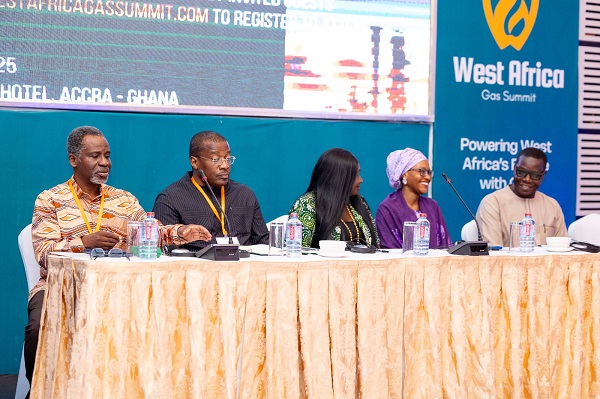
Private sector key to unlocking West Africa’s gas potential — Panellists
PANELLISTS at the West Africa Gas Summit (WAGS) have said private sector participation was key to addressing the infrastructure challenges facing West Africa’s gas development.
They said while public sector initiatives through the Economic Community of West African States (ECOWAS) have laid the foundation, the infrastructure required demands significant private sector involvement.
That, they believe, would help the region transition into a truly gas-powered regional economy that supports jobs, industry and sustainable growth.
They were the Director-General for the West African Gas Pipeline Authority (WAGPA), Chafari Kanya Hanawa; the Executive Director for Gas Distribution, NNPC Gas Marketing Limited, Auwal Ibrahim; the Economic Principles Lead for Decade of Gas Programme, Ramatu Abdullahi; Senior Energy Specialist at World Bank, Justin Beleoken Sanguen and a representative from the Ghana National Gas Company, Benjamin Buabeng.
Mr Buabeng proposed that West African countries should present a unified regional blueprint to development partners, including the African Development Bank (AfDB) and the World Bank, to secure financing for gas infrastructure development.
Ms Abdullahi highlighted Nigeria’s experience as demonstrating how proper policy frameworks could attract investment without actively chasing capital.
She said Nigeria’s ‘decade of gas’ initiative was an example of successful public-private collaboration.
“Once you have policies and regulations that provide the enabling environment, investors will be willing to invest in infrastructure,” she stated.
Gas summit
The maiden edition of WAGS was on the theme: “"Rapid Regional Gas Sector Expansion for Socio-Economic Development."
It was organised by The Gas Consortium in collaboration with the Ministry of Energy and the West African Gas Pipeline Authority.
It brought together industry players from Ghana, Nigeria, Togo and Benin to explore ways the region can translate potential into progress and ensure that the gas sector becomes a true engine of inclusive economic growth in the region.
Regulatory environment
Ms Hanawa disclosed that WAGPA had signed a three-year strategic partnership with The Gas Consortium to support and promote the successful organisation of this Summit during its foundational years.
The collaboration, she said, was not a sponsorship, but a commitment to building an enduring platform that will help unlock the immense potential of natural gas in West Africa with the intent of extending the WAGP beyond its current reach.
“As a public authority representing four sovereign States, WAGPA brings to this summit not only regulatory insight but also the accumulated aspirations and ambitions of our state parties.
“And it is our firm belief that the WAGP—678-kilometre pipeline spanning four nations—remains the backbone of the emerging regional gas market. But a backbone alone is not enough,” she said.
To support this transformation, Ms Hanawa said West Africa must continue to evolve its regulatory frameworks.
She emphasised that gas was a global commodity, hence the regulatory environment must be agile, competitive and investment-friendly.
“The goal is not just compliance. The goal is to attract capital, drive down costs, and create certainty for investors and end-users alike—especially in the industrial sector, which we see as the engine of regional development,” she stated.
Potential
The Executive Secretary for The Gas Consortium, Senam Kodzo Gbeho, said to change the fortunes of West Africa as a sub-region, there was no doubt that energy poverty must be addressed urgently and decisively.
He explained that energy remained one of the most persistent and critical challenges to the region’s collective development.
He said gas, with its relatively cleaner emissions and abundant availability in the region, held the key to unlocking new pathways for affordable, reliable and sustainable energy access.
“Gas in our region has been predominantly associated with the electricity sub-sector. This practical association stems from gas’s role as a fuel for power generation. However, the time has come to expand and redefine the identity of gas within West Africa,” he stated.
He said gas must be seen not just as an energy source for electricity but as a cornerstone for energy security, industrial transformation, and regional economic integration.
